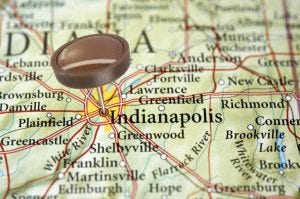
An Eli Lilly aseptic facility in Indianapolis, which fills COVID-19 antibodies along with other drugs, has received a US FDA Form 483 with seven observations.
The Form 483 (available below) was published last week and highlights the issues the US Food and Drug Administration (FDA) found after inspecting the facility in Indianapolis, Indiana in February and March this year.
Among the seven observations noted, the Agency highlighted failures by Lilly to establish an adequate system for monitoring environmental conditions in aseptic processing areas, to thoroughly investigate any unexplained discrepancy or failure of a batch to meet any of its specifications, and failure to establish and follow appropriate written procedures designed to prevent microbiological contamination.

Image: iStock/jcamilobernal
Employee fatigue was also commented on in the latter observation, with the FDA pointing to an instance where a “Filling Operator Extended Personnel Shift was listed as being challenged for 14 hours, 9 minutes” during the production of a batch in July 2020.
“Management confirmed the operator did not have to work on the aseptic fill line for the entire time they are challenging fatigue. They stated they do not consider the time the operator is working in the aseptic B 103 vial filling line during the fatigue challenge, instead the monitor the length of the operators shift, regardless of where they are working. As performed by the firm, the fatigue challenge does not ensure the operator maintains aseptic technique even when they are fatigued.”
More criticism was thrown at Lilly for the lack of training given to employees engaged in the manufacture, processing, packing and holding of a drug product, while the FDA also slammed the firm for failures in its testing methods and quality control issues.
The 483 noted some of the drugs produced at the facility, which include bamlanivimab and etesevimab for COVID-19. The combination of the two monoclonal antibodies were temporarily approved under emergency use authorization EUA earlier this year.
The publication of the Form 483 comes 10 months after Lilly received an “Official Action Indicated” (OAI) notice for its Branchburg, new jersey plant following an inspection in November 2019 that found that processing data had been deleted and not appropriately reviewed by the firm’s quality unit. The site manufactures drug substance for numerous products, including bamlanivimab.
EliLily508ed by Dan Stanton on Scribd
About the Author
You May Also Like

schedl_b_and_w.jpg?width=100&auto=webp&quality=80&disable=upscale)
schedl_b_and_w.jpg?width=400&auto=webp&quality=80&disable=upscale)






